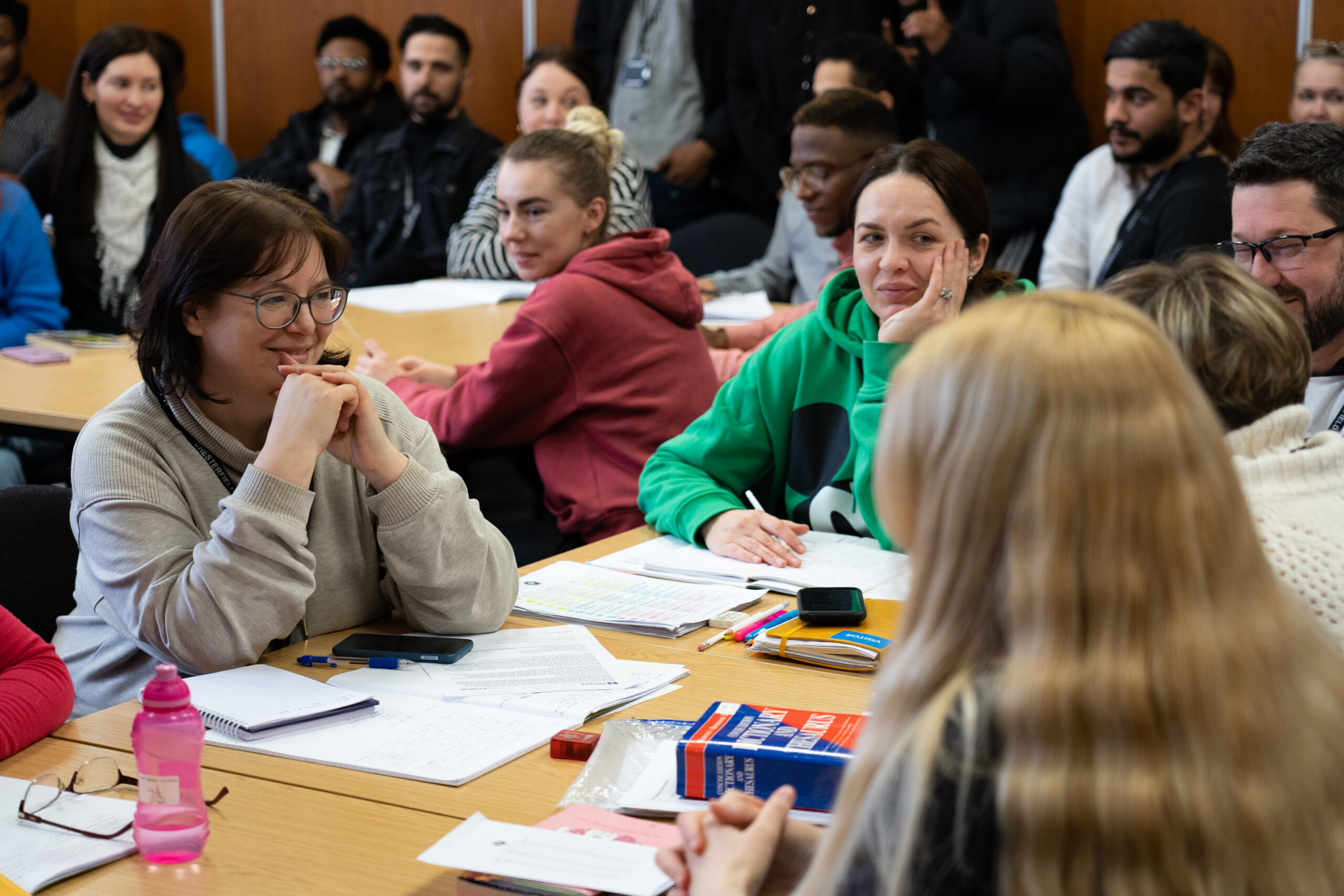Pati White, ESOL Coordinator speaks to us about the importance of the course.
06 March 2023Pati White, our ESOL Coordinator at college spoke to us this week about the importance of the course. She spoke to us in detail about the provision, how they get learners through the door, who it’s aimed at and how the course transforms lives.
Pati goes into detail about some of the learner’s struggles and successes. We are proud of the team and everything they do to support ESOL students in college and to get back into the working world after college.
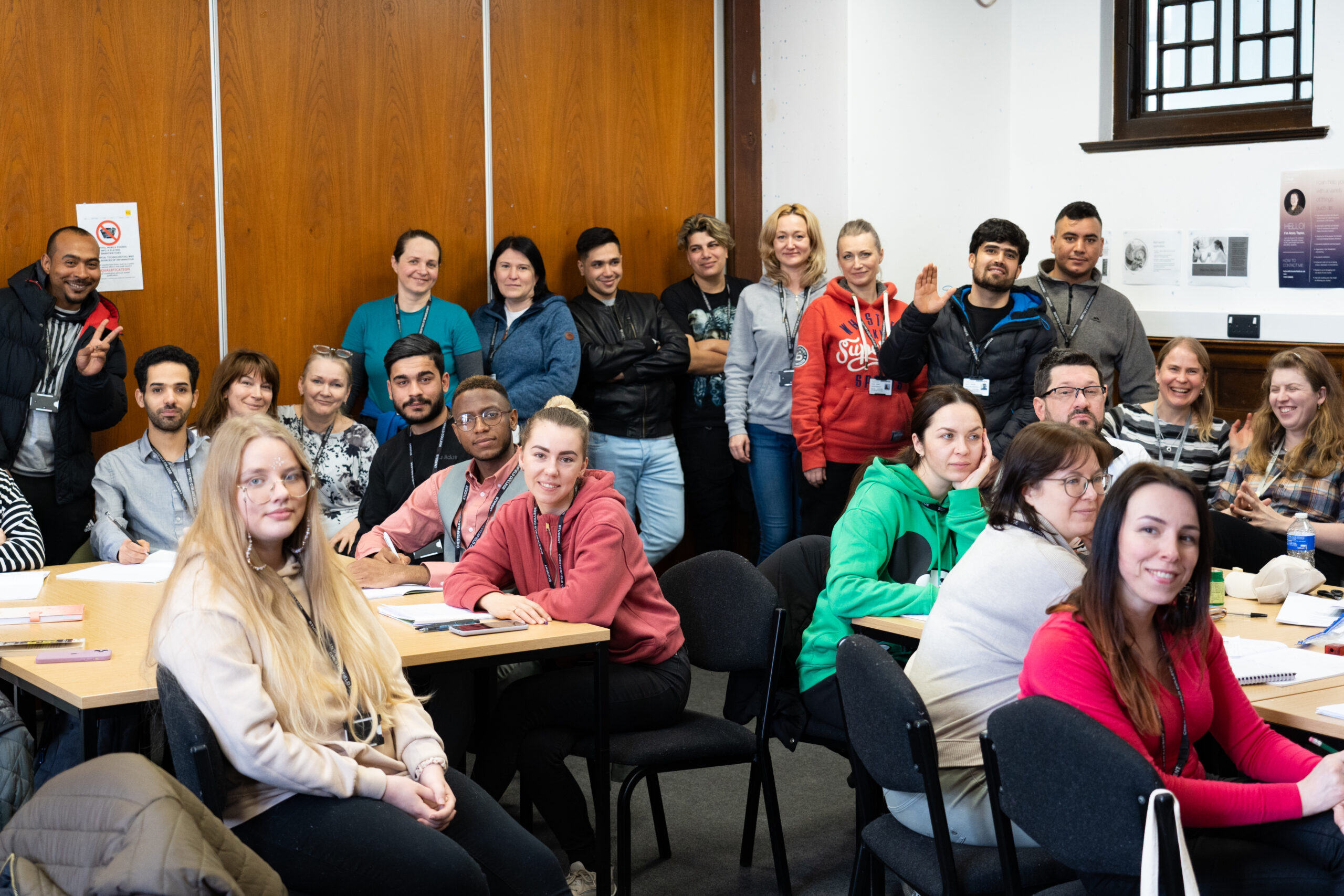
We ran our first intensive course over the summer of last year.
“Since summer we have grown massively as an area. We were approached to see if we have any ESOL courses for Ukrainian Refugees. We initially put on an open event around may last year to get an idea of how many students would be interested. We had a fantastic response and as a result, we ran our first intensive course over the summer of last year. This was mainly Ukrainian refugees but also asylum seekers from Africa.12 weeks is a short time to achieve and learn a whole new language.
After they completed the intense course, they progressed to the September course for 12 weeks. The goal is to sit three awards, but we make this decision depending on the abilities of the individual. There’s an element of flexibility as 12 weeks is a short time to achieve and learn a whole new language. I’m not a native speaker myself so I can relate to that. A lot of students have run away from countries for very horrific reasons. We are finding they are very skilled professors, lecturers, doctors and lawyers and the only thing that is stopping them from continuing the career they had back home is the language.It’s the confidence to be able to be a member of society.
It’s not just the career aspect, it’s the confidence to be able to be a member of society. We want them to be able to integrate with the community. We want them to be able to secure full-time employment. The best-case scenario is for them to secure employment in the industry they were in back home but some of them retrain or it’s just about them getting their confidence and independence back. People want to be able to go to the doctors and not have to take an interpreter. You want to be able to go to appointments that could be personal or upsetting on your own. It can be quite embarrassing when you must rely on someone. Knowing we are equipping students with the skill to be able to do this makes the job so worth it.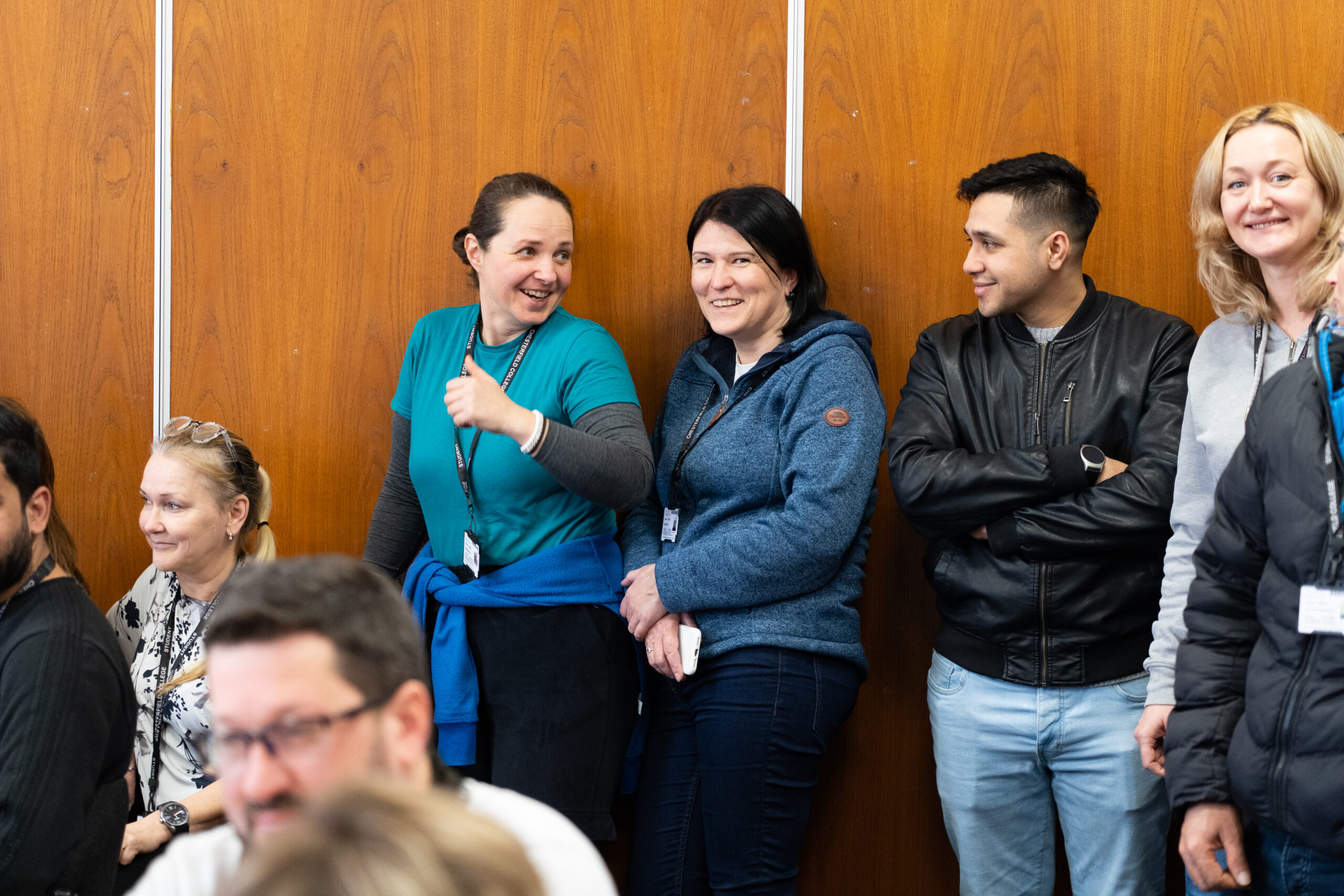
If you are eligible you can get on the course for free.
If you are eligible, you can get on the course for free. You need to be on benefits/universal credit or be earning under a certain amount. If anyone is interested and not sure, we ask them to come in and explain their situation so we can help them and direct them to the right service so that they are able to enrol without any or minimal financial impact.We are keen to make links with local charities and employers.
As a department, we are keen to make links with local charities and employers that can come in and educate students about their rights here in the country. We have recently had a workshop for Derbyshire Law Centre. They talked to us about what they offer. Since that we have had a student get in touch with them about the issues they are facing around the cost-of-living crisis. We have a mix of refugees, asylum seekers and individuals with settled status, so each case is very specific and has many different laws. We want charities to engage with us and support our students.We find a lot of our students may be having certain learning difficulties or disabilities that they weren’t aware of.
We are exploring the wider support around college for pastoral and mental health. We have a fantastic support coach who comes in to talk to the students and support them with pastoral issues. We find a lot of our students may be having certain learning difficulties or disabilities that they weren’t aware of. The most recent case was one gentleman who has shown dyslexic traits in class. We got him in touch with our SEND team for an informal chat. It turns out that he finds it easier with a yellow screen/paper. Just a simple change like that has made all the difference, his persona has changed, and he’s more engaged and confident. It made him very happy. In England this is normalised, staff are trained to spot the initial signs of SEND needs. Often, we must remind ourselves that this might not be the norm in the country that the individual comes from. This is why it’s on us to notice the signs and we are very grateful for our SEND team who support the students and discuss with them the right advice.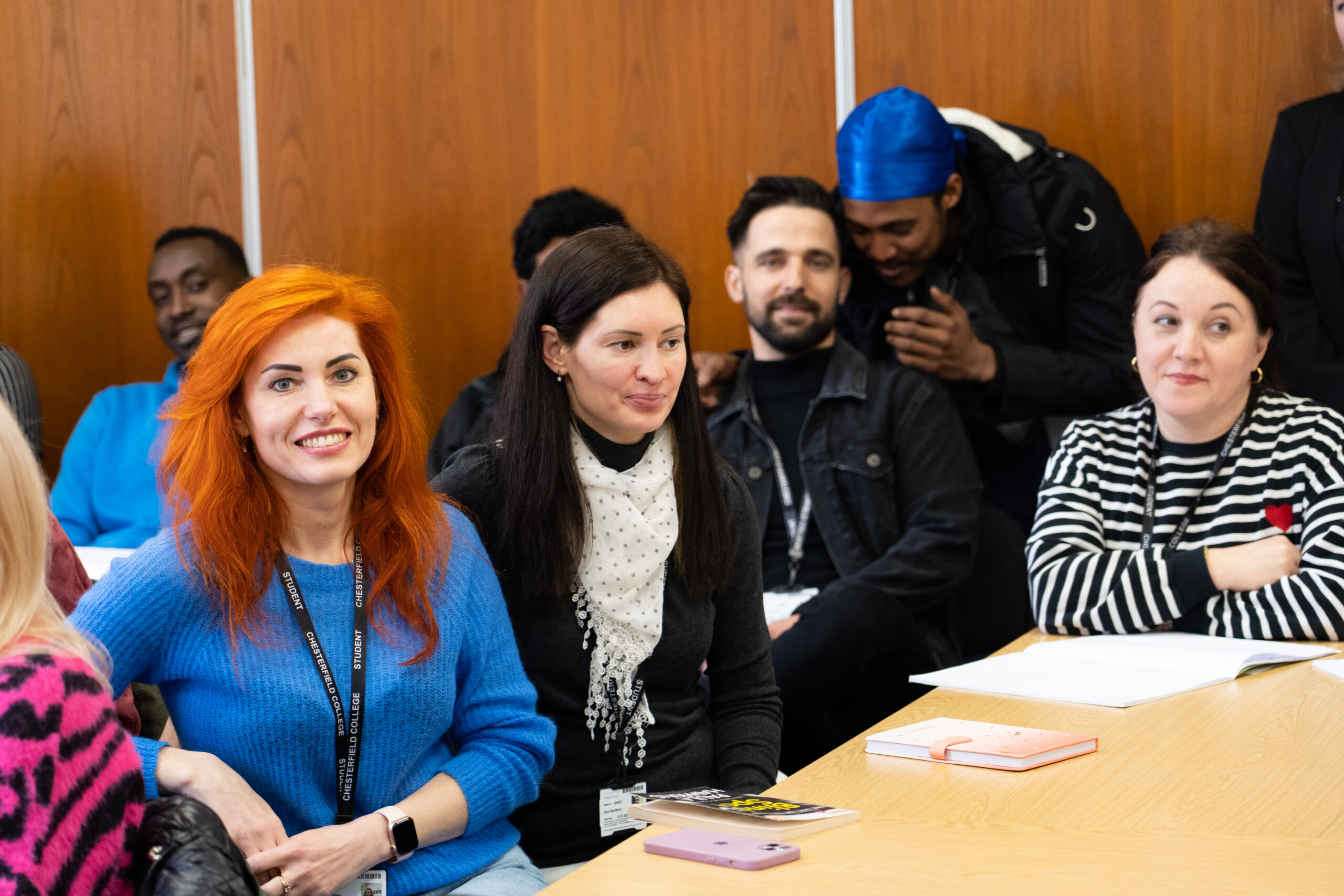
A lot of our students come to us through word of mouth.
We have got very strong links with local job centres to advertise the course and we have off–site provisions running currently. We are also going to look at talking to councils and charities to get further support. A lot of our students come to us through word of mouth. We are very keen and eager to continue to build these external relationships. We recognise that there is a need for this course in the community. Especially considering the recent war that is happening over in Ukraine. It highlighted the issue that was already there. We want to change people’s lives and support them.My goal is to have every person that walks through our doors, once they have reached the highest level they can, leave knowing their rights, how they should be treated and in what areas the law is on their side.
We have students who are desperate to be in college as much as possible because college is an element of normality. We go for an easy family feel in the department because that’s what we are. We try to make sure that students are comfortable and that the lessons are not just about workbooks and grammar. They are about culture and social norms, rights, and responsibilities. I know people who have sadly been taken advantage of because they didn’t know their own rights. Unfortunately, it’s still among the immigrant community that they very often fear for themselves to speak up because they are not English, British or have a British passport. My goal is to have every person that walks through our doors, once they have reached the highest level they can, leave knowing their rights, how they should be treated and in what areas the law is on their side. I think some of them have had some horrific experiences and I want to give them that light at the end of the tunnel and make them feel safe again. We have students who have gone through a transformation since being here. Seeing that change in them is incredible. Hearing stories from other teams about what a journey they’ve made with their English and confidence is incredibly satisfying.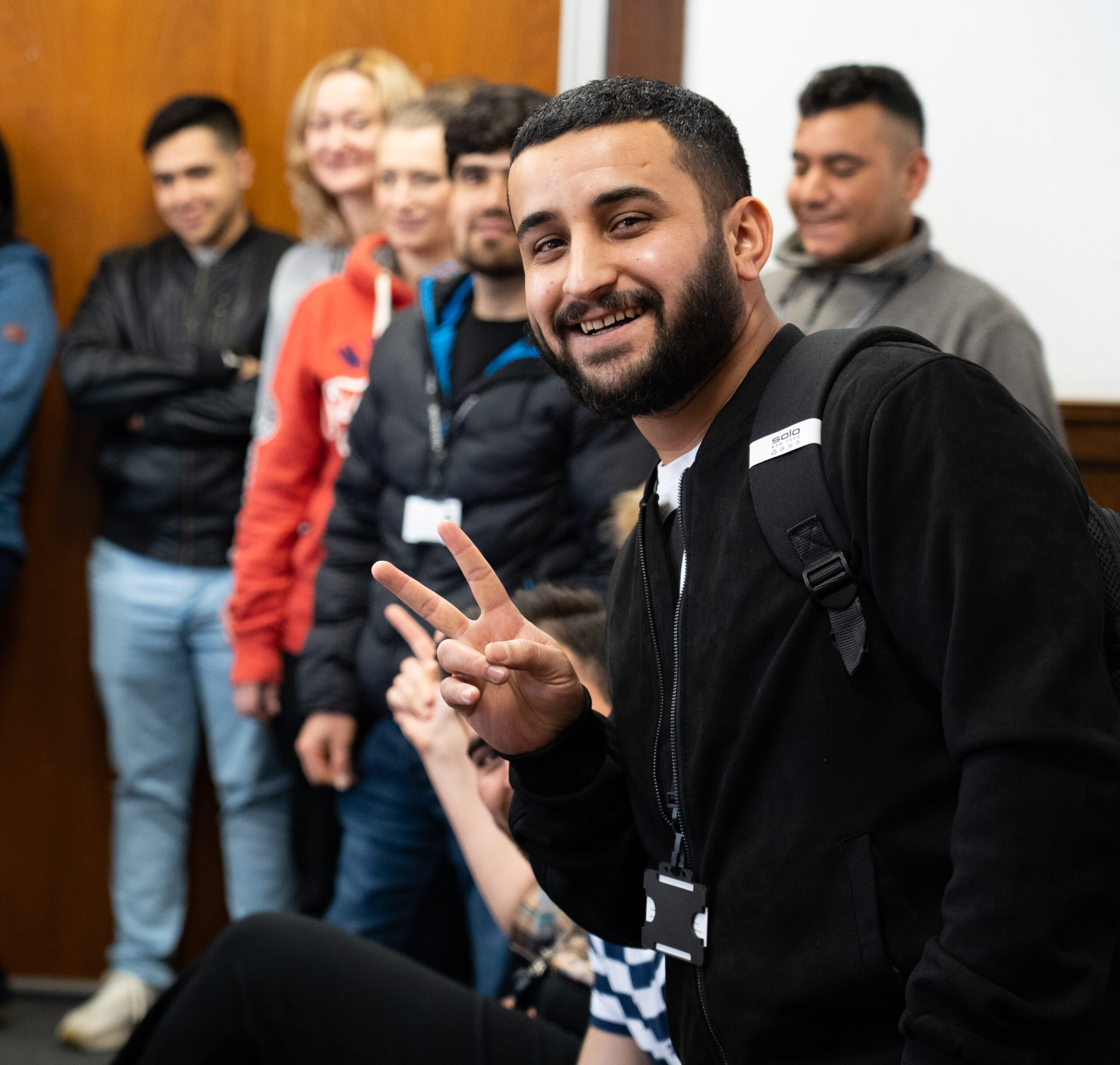
We are looking at involving some of the employability courses that they offer as a wraparound experience.
Now we are in partnership with the Workskills team. We are looking at involving some of the employability courses that they offer as a wraparound experience. Before the February half term, some of our students were taking part in a non-credited math skills course. This equipped them with the knowledge and understanding of math and everyday finances. Now they are looking to progress onto some more employability courses and then into other departmental courses around the college.Some of the recent success stories.
Two of our female learners have secured full-time/part-time employment as teaching assistants. One of our students has secured a recent grant with Loughborough University and now he is working with them as a professor of mathematics. We have also had a couple of students who have expressed interest in apprenticeships. We explore lots of avenues with our students and help them with the next steps after college and beyond, not just their time at college. One of our students applied for university through UCAS and has been invited for an interview at Sheffield Hallam. She has been doing her GCSEs, the team think she is fabulous, and she stands a very good chance of passing. There’s one student I interviewed in the summer who spoke no English. Before Christmas, we bumped into each other in the corridor and had a quick catch-up. In six months going from not even understanding what’s your name, to having a small conversation is enormous progress.